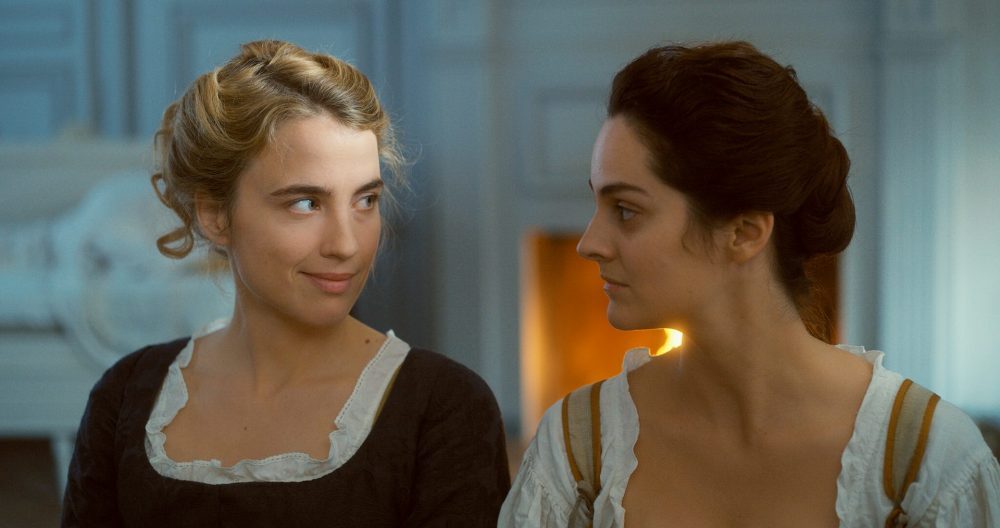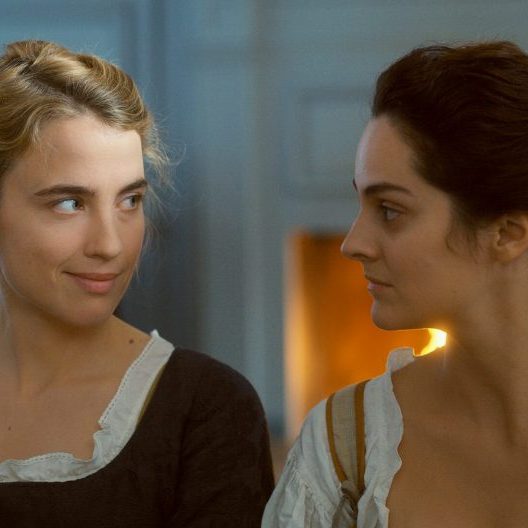
Just before I started writing my PhD dissertation about queer spectatorship of horror film, I saw Céline Sciamma’s film Portrait of a Lady on Fire.
Portrait shifted my relationship to the medium of film, an art form that I have loved my entire life and had spent many years studying. Even though I have always believed that film—the ‘cathedral of the arts’—has the capacity to change lives, I had never personally seen a film that reverberated so intimately within myself and so intensely through the LGBTQ+ community.
I could not stop thinking about the film, while simultaneously seeing the film’s impact reverberate through the queer community: women got Portrait tattoos in droves, social media accounts dedicated to Portrait alongside the hashtag #portraitnation spread and grew, and a podcast dedicated to all things Portrait was created. I knew pretty quickly that I wanted to understand the impact Portrait has had on queer women and non-binary people.
My doctoral research is based on a survey I created and conducted on horror-loving queers, resulting in the largest audience study in horror studies that empirically demonstrates how this audience understands horror to be queer. In order to understand the impact of Portrait and to increase visibility and understanding of the lesbian and non-binary ‘Portrait Nation’ community, I worked with two other queer women to create a methodologically based, anonymous academic survey for lesbian, gay, bisexual, pansexual, asexual and/or queer women, as well as non-binary people, who have seen Portrait. We aim to not only understand but also document this LGBTQ+ community as a film audience: the large number of us, our ages, all the different countries we live in, and the range of our lesbian and queer experiences.
With nearly 600 hundred responses thus far, we already can see the depths of Portrait’s impact on a diverse representation of queer women and non-binary people.
These survey participants shared deep and meaningful reflections, including the following small selection, about their experience of Portrait:
- “It’s unafraid to be deeply lesbian in its aesthetic and perspective, and it’s not at all interested in explaining that perspective to outsiders. And that’s so refreshing!!”
- “It changed my life, it woke me.”
- “My feelings about Portrait range far beyond what I can articulate in a survey, but I’ll say that as an autistic, queer woman whose special interests are historical recovery, queer life, lesbians, and theory, this film truly means the world to me.
- “I think it’s not only the best lesbian film ever, but it’s also the best film. Period.”
- “Portrait is a marvel to behold for me. It is a masterpiece. I wish I could share it with the whole world, but I know the whole world cannot see it through my eyes. It is so special to us, the queer community, in that way.”
- “This film changed my life.”
- “Watching Portrait I felt something that I never did before and we need more movies like this, special lesbians movies directed by lesbians directors.”
- “As a non-White lesbian living in the 21st century, I feel completely seen and understood by these White French ladies. That’s the power of art. I don’t think anything will ever replace Portrait in my heart.”
Hundreds of people, from Singapore to Switzerland, from India to Iran, have already taken this Portrait survey, but we seek to document many more voices and experiences. While our survey has had a strong start with hundreds of responses from around the world, we want many more responses from lesbian, gay, bisexual, pansexual, asexual and/or queer women and non-binary people who have seen Portrait in order to strengthen the findings of the study, which we will share back with the community (follow along @portraitofasurveyonfire). Every voice and every experience is valuable and is needed to provide the most nuanced understanding, so add yours today by taking the survey at the link below.
Once you do, please share the link and encourage others to take it.
https://portrait-survey.onlinesurveys.ac.uk/on-fire
Don’t regret (not making your voice heard). Remember (to take and share the survey).

